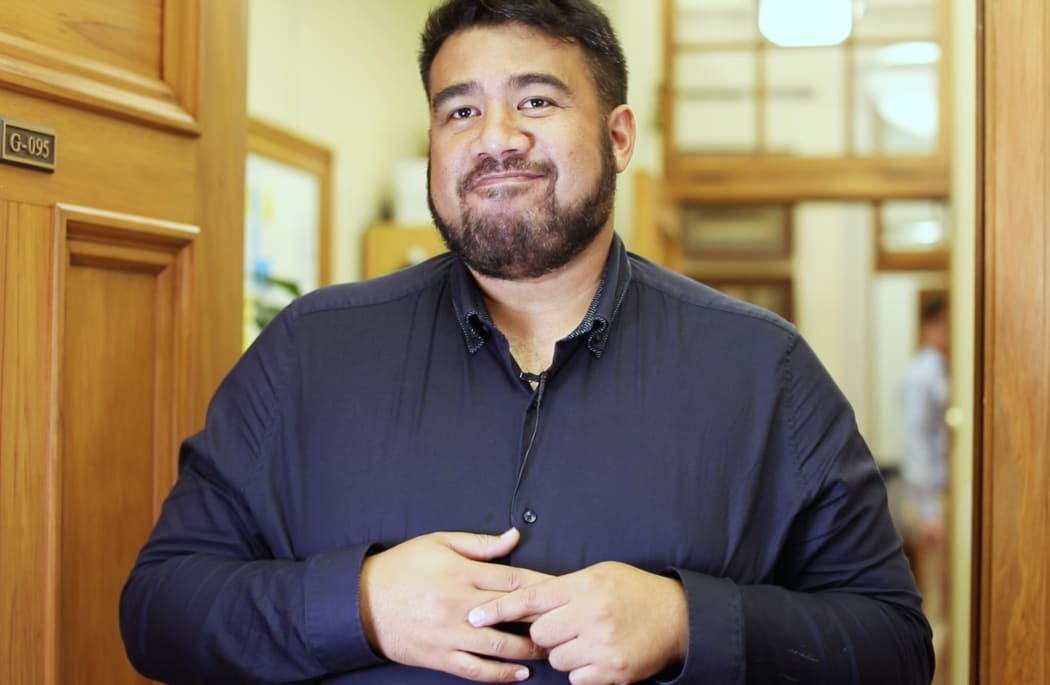The rowdy and often confusing practice of Question Time at Parliament may become easier to follow for New Zealand’s deaf community with New Zealand Sign Language interpreters now a permanent fixture.
“The way that the House works is a foreign process to 99 percent of people, except for the geeks,” says Deaf Aotearoa interpreter Alan Wendt.
Question time normally takes up the first hour of a sitting day in Parliament. It’s a chance for Opposition and backbench MPs to question Ministers about how they’re running the country.
“The style of discourse in the House during question time is very formal, and it’s controlled by the Speaker and it’s all to the Speaker, but not really to the Speaker, so we’re going to have to find ways to represent that relationship between Speaker and MP,” Alan says.

New Zealand Sign Language Interpreter for Deaf Aotearoa Alan Wendt. Photo: VNP / Daniela Maoate-Cox
If that sounds a bit round-a-bout, that’s because it is.
In the House, MPs don’t talk directly to each other but instead address everything they say to the Speaker who acts as a mediator or referee, but isn’t really a part of the debate.
“We have to learn how the process works and understand the jargon of the process,” Alan says.
“Once you know what the jargon means then you can find an equivalent in the language, or work with the deaf community to develop some sort of temporary signs, what are called neologisms... [that] we can use until we’re comfortable with the equivalents we’ve found.”
More than 20,000 New Zealanders use New Zealand Sign Language (NZSL) daily and it’s also one of the official languages of Aotearoa.
Alan says there are tools to help deal with some of the more challenging words at Parliament.
“In interpreting you’re going between languages, which means you’re going between worlds and how they talk about stuff,” he says.
As with all languages, there are times where there is no direct translation or equivalent he says.
“Even between Maori and English for example, if you talk about manaakitanga, [it] means much more than you can explain in one word and if you don’t have a go-to translation in English which covers what it really means, then you have to circumlocute and break it down into its constituent parts.”
Parliament has had NZSL interpreters during question time for New Zealand Sign Language week since 2014, and Alan says it will be up to the deaf community to determine whether or not their permanent presence will be beneficial.
“I’m aware that deaf people have been advocating for more interpreting being provided by the government to do with government and parliamentary processes. The way this has all come about has come from deaf lobbying organisations.”
For people who find interpreters or captions distracting Alan says he can understand that feeling, but it’s worth thinking about those who will benefit from it.
“I don’t want to take away from how people feel about the world,” he says.
“I guess it has to be balanced against other people who don’t have access in the same ways that everyone else does, deaf sign language users haven’t had access to movies, television programmes.
“Some of my deaf friends, they’ve never seen What Now in the same way I have...all that incidental learning and all that kind of cultural stuff that’s so embedded in experience has not been accessible.
“So I appreciate that some people find interpreters distracting and captions annoying but I think the deaf community and hard of hearing community would have very different views on that.”
You can watch question time on demand here: Parliament TV and Radio


